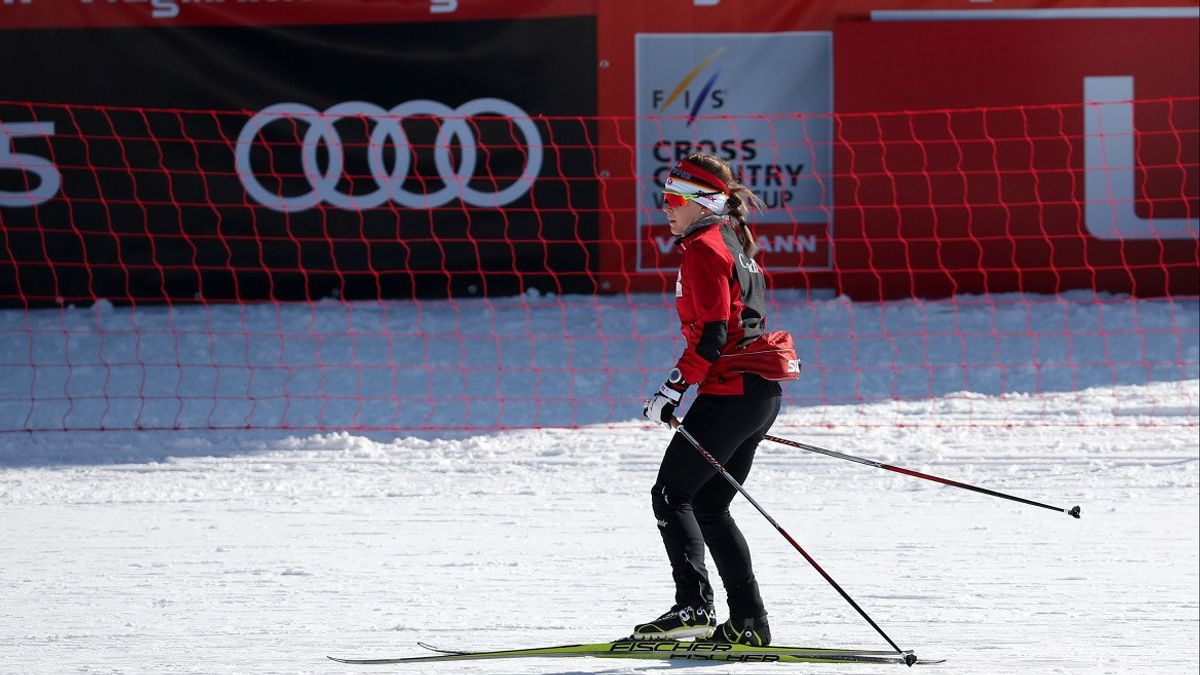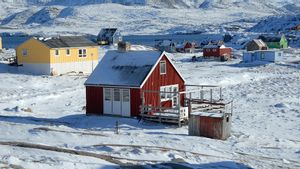JAKARTA - Of the 21 cities that have hosted the Winter Olympics, only Sapporo, Japan can provide fair and safe conditions for holding them again by the end of the century, if greenhouse gases are not drastically reduced, said a University of Waterloo study released in last Tuesday.
An international team of researchers, led by the University of Waterloo, reviewed historical climate data from the 1920s along with trends in future climate change.
They define, winter playgrounds like St. Moritz and Lillehammer could be Olympic relics in the mid to late century, with unreliable conditions preventing them from hosting the Olympics.
Research reveals that the average February daytime temperature in host cities continues to rise – from 0.4 Celsius at the Olympics held in the 1920s to 1950s, to 3.1C at the Olympics during the 1960s. to the 1990s, and 6.3C at the Olympics held in the 21st century, including next month's Beijing.
"If we continue on the trajectory we have now, we will end up with Sapporo being the only climate reliable location by the end of the century and after that, we will have to look and see even when Sapporo switches", Daniel Scott, a professor of Geography and Management The neighborhood in Waterloo, told Reuters as quoted by Euronews on January 20.
"Even by mid-century the number of climate-reliable locations, at least the 21 hosts we had in the past, will decrease". It is known, Sapporo hosted the Olympics in 1972.

Europe has become the cradle of the Winter Olympics, having hosted more than half of the Olympics, including the first in Chamonix in 1924 and the next after Beijing in Milan/Cortina d'Ampezzo.
However, the Alps region in Europe is already feeling the effects of climate change and Scott said the study's message to the International Olympic Committee (IOC) is, they need to be more flexible in the future when choosing a venue, switching to a higher, higher altitude to run. events such as ski racing.
"Climate change is changing the geography of the Winter Olympics and unfortunately, will eliminate some of the host cities that are renowned for their winter sports", said Robert Steiger of the University of Innsbruck in Austria.
"Most host locations in Europe are projected to be marginal or unreliable by the early 2050s, even in a low-emissions future", he said.
Climate change has been on the IOC's radar for some time, with the Olympic body adding sustainability as a third pillar of the Olympics in 2014.
The IOC, according to the study, has one of the most ambitious emissions commitments in sport and across all sectors.
He announced ahead of the United Nations Climate Conference in Glasgow (COP26) that he aims to be 'climate positive' by 2024 by reducing direct and indirect emissions by 30 percent.
Starting in 2030, Olympic host cities will be contractually obligated to be climate positive.
In addition, the researchers also surveyed international athletes and coaches and found around 89 percent felt changes in weather patterns affected competition conditions. Meanwhile, 94 percent are worried that climate change will have an impact on the future development of their sport.
The report also notes that higher accident and injury rates among snow sports athletes can be partly attributed to higher environmental temperatures and poor snow conditions.
SEE ALSO:
The last three Winter Olympics had the highest recorded injury incidence rates among alpine skiing, snowboarding, and freestyle athletes - 55 percent higher than any other Winter Olympics.
"The International Olympic Committee will have increasingly difficult decisions about where to award the Olympic prizes", said Siyao Ma of the University of Arkansas.
"But the world's best athletes, who have dedicated their lives to the sport, deserve to have the Olympics located in reliable places to provide safe and fair competition".
The English, Chinese, Japanese, Arabic, and French versions are automatically generated by the AI. So there may still be inaccuracies in translating, please always see Indonesian as our main language. (system supported by DigitalSiber.id)













